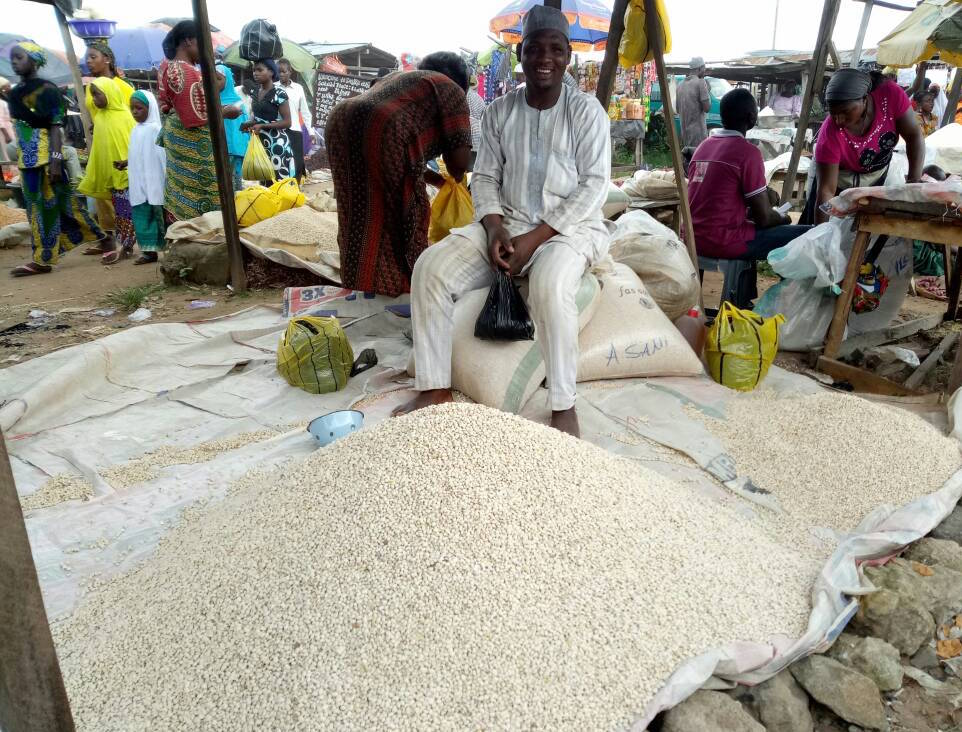
Nigerian scientists are taking a home grown approach in using biotechnology to improve the nation s staple crops in order to feed a rapidly growing population.
Five staple food crops rice, maize, soybean, cassava and cowpea are the subject of agricultural biotechnology projects currently being carried out by Nigerian scientists working in research institutions across the country in collaboration with the nation s National Biotechnology Development Agency (NABDA).
Nigeria is projected to be the third largest nation in the world by 2050, just behind China and India, with a population of over 300 million people. It is already battling to feed its 180 million people, with some states, especially in those in the northeast where insurgency thrived, said to have the highest risk of malnutrition and hunger.
However, the 2015 passage of a national biosafety law has presented Nigeria with an opportunity to utilize modern agricultural innovations like biotechnology to improve agriculture and feed the people. Hunger is closely linked with the inability to produce enough food to feed the people.
Though biotechnology is a relatively new foreign technology, Nigerian scientists are already adapting it to develop better varieties of regionally important crops. One key example is the Pod-bearer Resistant Cowpea (Beans) Project initiative, which aims to develop and disseminate to farmers preferred and locally adapted Maruca resistant cowpea varieties in sub-Saharan Africa. This project is being led by African scientists in African public institutions, and not by biotech companies.
The project has been designed to optimize cowpea productivity and utilization, while providing farmers with an alternative to the costly and hazardous practice of spraying insecticides to combat the destructive Maruca bean pod borer moth. It entails transferring the Bt gene, which confers resistance to the pod of the improved cowpea varieties, in a method consistent with international biosafety standards.
Bt, or Bacillus thuringiensis, is a soil-dwelling bacterium commonly used for pest protection in organic and conventional agriculture. A number of crops, such as cotton and maize, have been engineered with the Bt gene to provide pest control without the use of insecticide sprays.
The home-grown genetic engineering initiative has successfully conferred 100 percent protection against Maruca on cowpea by introducing the Bt gene, said Mahammad Ishiyaku, principal investigator of the pod borer resistant (PBR) cowpea project in Nigeria at the Institute of Agricultural Research (IAR), Zaria, in an exclusive interview with the Alliance for Science.
Ishiyaku, a plant breeder, explained that the team of Institute researchers working on the project had successfully developed cowpea resistant to the pod-borer pest, thus assuring that Bt cowpea will help cowpea farmers reduce the significant losses. Farmers can lose 80 percent of their crop to severe infestations.
Ishiyaku pointed out that the genetically modified cowpea, which is due for commercialization in 2018, addresses farmers concerns about yields and could also help double the production of the staple food to meet the needs of Nigeria s growing population.
Meanwhile, scientists in various mandate institutions across the country are working on homegrown solutions to improve other staple crops, according to Dr. Rose Gidado, deputy director of NABDA.
They are currently conducting confined field trials (CFT) on several crops to determine the viability of their research. These include nitrogen use efficient, water use efficient and salt tolerant (NEWEST) rice; African bio-fortified sorghum (ABS); Bt maize; herbicide tolerant soybeans, and virus resistant cassava enhanced with iron and zinc.
The CFT for cassava is being done in collaboration with the National Root Crops Research Institute (NRCRI), in Umudike, Abia State, while the maize project is in cooperation with the Institute for Agricultural Research (IAR), at Ahmadu Bello University in Zaria. The soybean CFT is in collaboration with the National Cereals Research Institute (NCRI) in Badeggi, Niger State.
All the projects are intended to help the nation produce high yield varieties of seedlings that are also disease and pest resistant, and able to withstand harsh and adverse weather conditions in view of the current climate change being experienced everywhere, Gidado said.
By cultivating high yielding seed varieties, farmers will increase their productivity and earn more money for themselves, she said. By adopting these crops, which are products of genetic modifications, they will be contributing immensely in the fight against poverty. These crops will enable biotechnology to become an important tool of agriculture.
They will also help to reduce labor input in farming through modernization and attract young Nigerians to participate actively in agriculture, she continued. This will help the nation solve a very important problem which had remained unsolved for a long time as many young people were reluctant to go into farming because of the outdated technologies that had hitherto been deployed.
Nkechi Isaac is a Nigerian journalist and a 2016 Alliance for Science Global Leadership Fellow.
